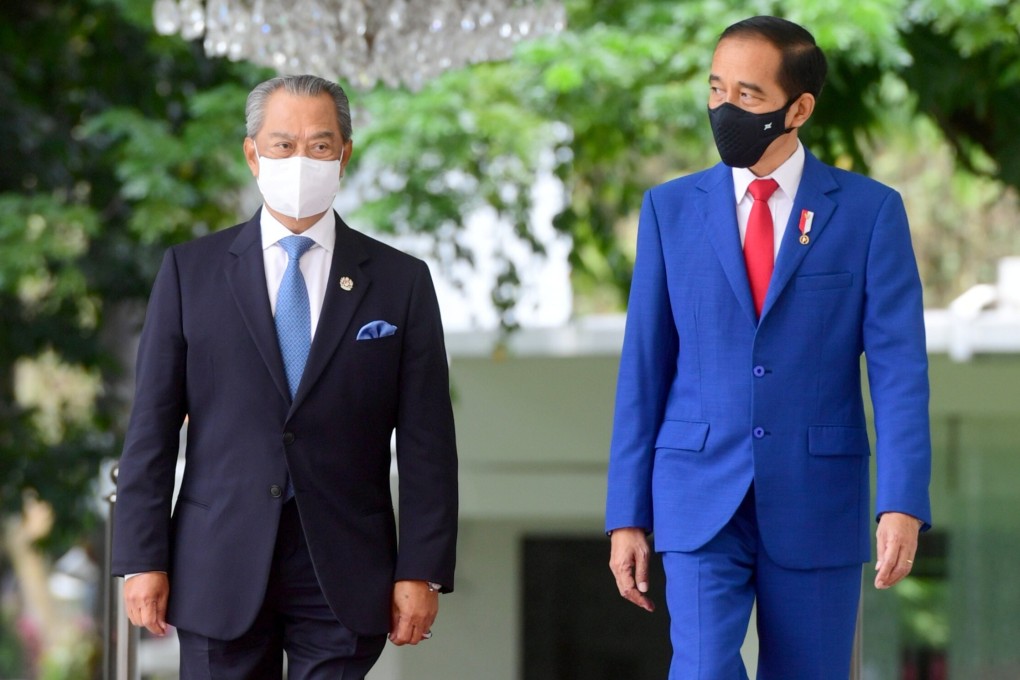Advertisement
Indonesia, Malaysia call for Asean meeting to discuss Myanmar coup as Muhyiddin says country has taken a ‘step backwards’
- Muhyiddin, who was in Jakarta for a brief visit, said a special meeting was necessary as the turmoil in Myanmar may jeopardise peace and stability of the region
- He and Joko Widodo also discussed cooperation over palm oil ‘discrimination’ by Europe, the protection of Indonesian domestic workers in Malaysia, and the South China Sea
Reading Time:4 minutes
Why you can trust SCMP
2

The leaders of Indonesia and Malaysia on Friday said they were seeking a special meeting of foreign ministers from Asean to discuss the situation in Myanmar, where an elected government was overthrown in a military coup earlier this week.
Indonesian President Joko Widodo and Malaysian Prime Minister Muhyiddin Yassin made the announcement at a joint press conference in Jakarta, where the latter was on a one-day official visit.
“We are concerned with the political situation in Myanmar, and we hope it will be resolved legally and with respect for the Asean Charter and community vision,” said Widodo, who is more commonly known as Jokowi.
Muhyiddin said a “special” Asean meeting was necessary to address the “step backwards” in Myanmar’s democratic process. “We are concerned that this political turmoil in Myanmar will also jeopardise peace and stability of the region,” he said.
Advertisement
The leaders said that rule of law, good governance, respect for constitutional governance, democracy and human rights had to be respected in Myanmar, where the military on Monday wrested back power from Aung San Suu Kyi’s National League for Democracy (NLD) party, which had decisively won the November general election.
The coup attracted widespread global condemnation, with the United Nations describing it as a “serious blow to democratic reform” and newly-minted US President Joe Biden threatening to reinstate sanctions on the Southeast Asian nation.
Advertisement
However, Asean neighbours such as the Philippines and Thailand described the matter as an internal affair.
Advertisement
Select Voice
Choose your listening speed
Get through articles 2x faster
1.25x
250 WPM
Slow
Average
Fast
1.25x